Lately, not surprisingly, I’ve been thinking a lot about paranoia. But in movies, not in crackpot political conspiracy theories. It takes me back to a batch of movies that were permeated with a dark strain of pessimistic dread. I mentioned making a film festival of movies that reflected this theme and a friend exclaimed, “Oh great, on top of depression now we have to experience paranoia!” True, I admit it seems counterproductive. But remember, it’s happening to the characters in the film, mercifully not to us. And besides, the films are too good not to revisit. (I probably should have included Joker with Joaquin Phoenix, but even I was not ready to revisit that). Here are a few, that, if you binge, will have you eying your neighbors with panicky suspicion:
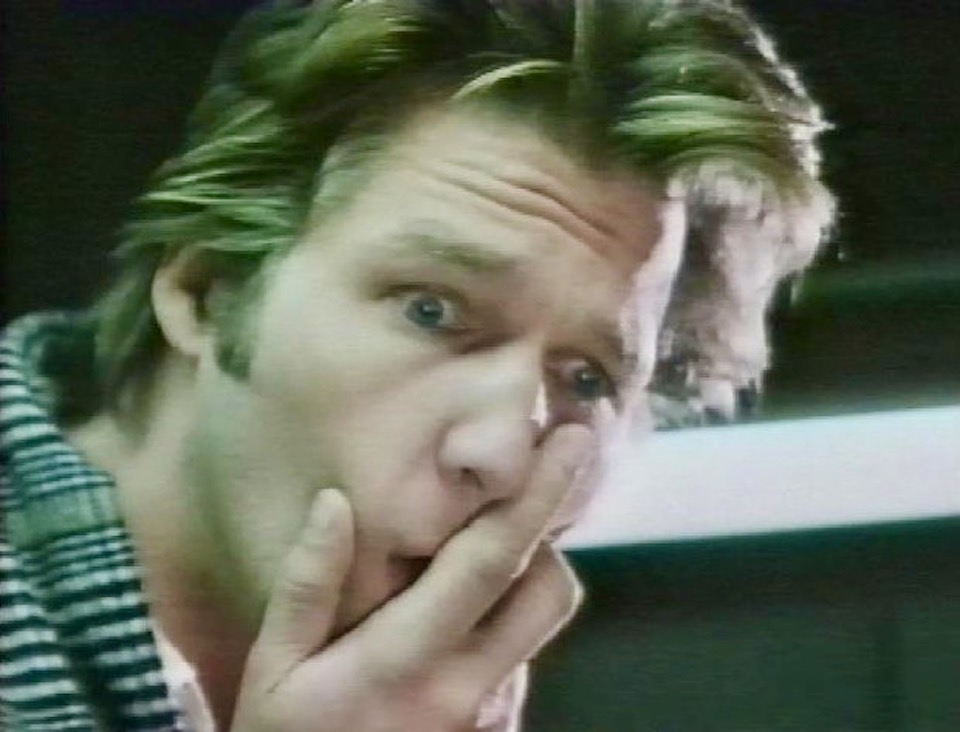
Winter Kills. A brilliant 1979 paranoid political thriller by novice director William Richert, which got great reviews but was pulled from theaters after a short run. It also has garnered a well-deserved cult following. Jeff Bridges plays the brother of an assassinated U.S. President who comes into contact with a dying man who claims to be the actual assassin and suggests a shady conspiracy plot. A bigger-than-life, frightening John Huston plays the Joe Kennedy-like father. Bridges goes down a rabbit hole with false leads, femme fatales, near-death attempts on his life and other mayhem as he tracks down clues to his brother’s murder. Richert assembled an astonishing cast- Richard Boone, Eli Wallach, Toshiro Mifune, Dorothy Malone, Anthony Perkins, Sterling Hayden. It’s just a fabulous treat.
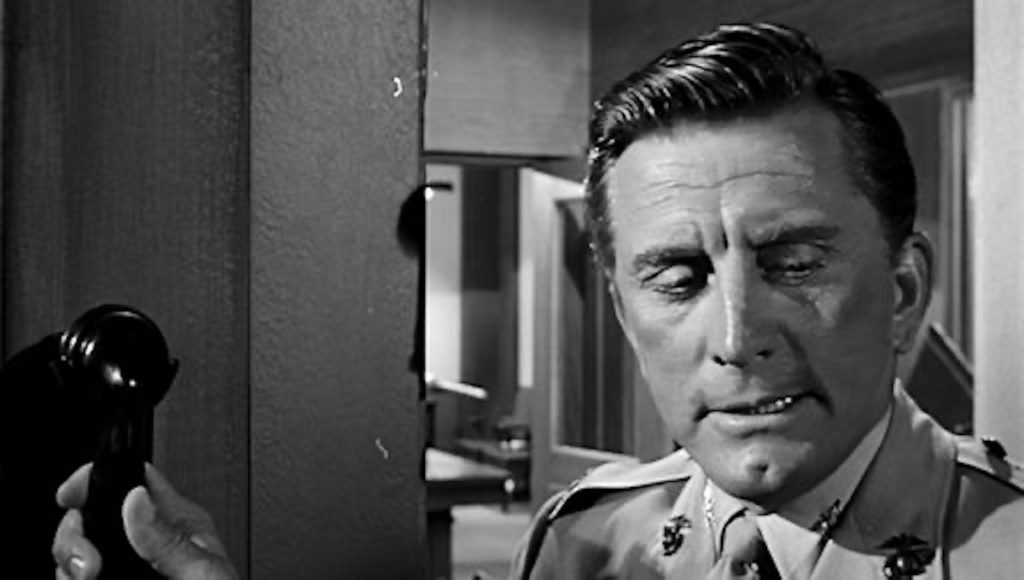
Seven Days in May. A smart, suspenseful, political thriller by John Frankenheimer (The Manchurian Candidate) starring Kirk Douglas as a Marine Colonel who suspects the General he works for (Burt Lancaster) is plotting a coup to take over power in the White House. With a smart screenplay by Rod Serling, this just plays out with mounting paranoia as Kirk Douglas navigates the back-stabbing corridors of power. No matter how many times I’ve watched this 1964 flick through the years it always feels frighteningly relevant. Check out John Frankenheimer’s sinister 1966 sci-fi thriller Seconds, starring Rock Hudson, for another glimpse at a shadowy secret society at work, here offering new lives for people (but at a terrible price).
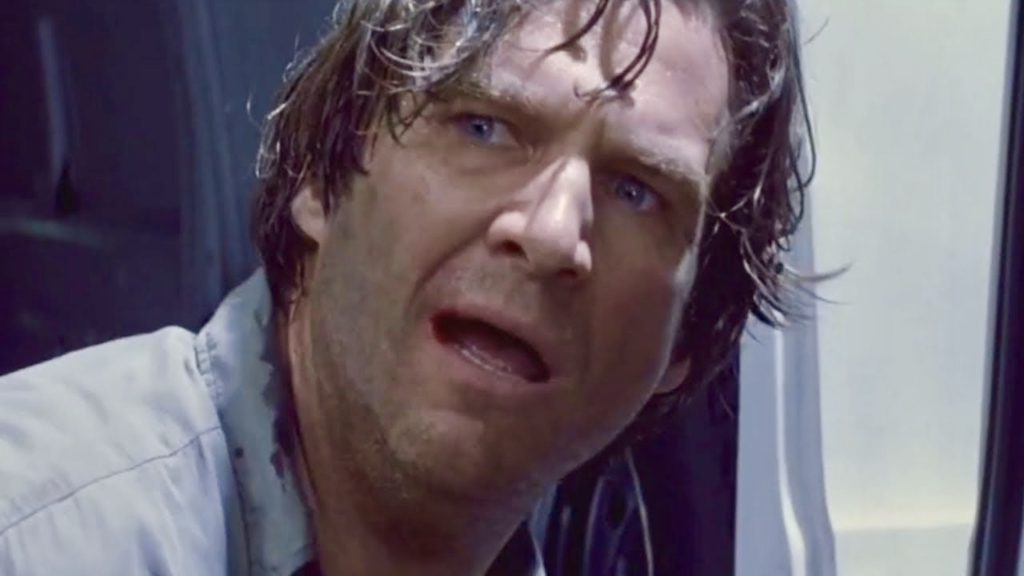
Arlington Road. Heart-stopping suspense, a great cast, and expert direction by Mark Pellington make this 1999 film one terrific thriller. Jeff Bridges plays a widowed father who teaches a course in political terrorism who suddenly suspects that the neighbors next door (Tim Robbins & Joan Cusack) are not who or what they seem. His new girlfriend (Hope Davis) chalks it up to paranoia caused by his F.B.A. agent wife’s death, but is there something truly malevolent hiding beneath the veneer of respectability on Arlington Road? A brilliantly constructed script by Ehren Kruger builds with almost unbearable intensity. Jeff Bridges gives a feverish, go-for-broke, performance as the haunted dad- nobody can project panic and personal pain like he can. And talk about a killer ending!
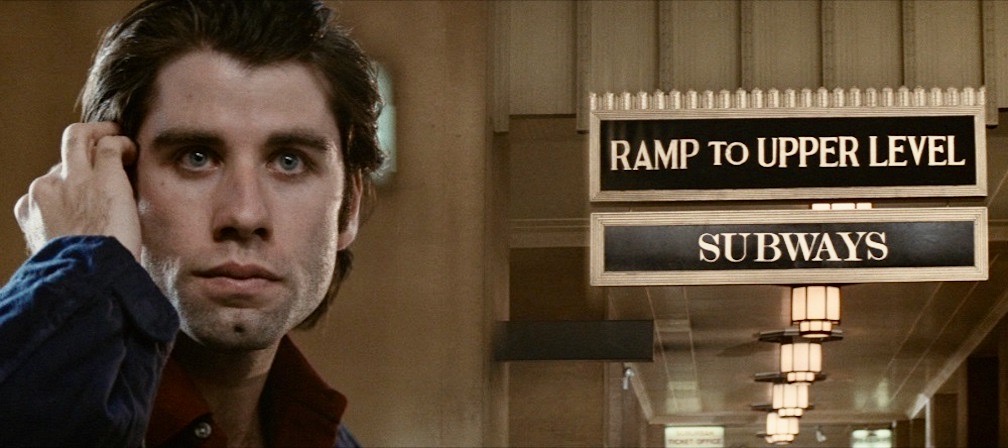
Blow Out. “Murder has a sound of its own,” was the tag line for this sensational Brian De Palma film with a career-best performance by John Travolta as a Philadelphia sound engineer for cheesy slasher films. He is out late recording ambient night sounds when he is witness to a car careening out of control and into a nearby lake. He dives in and is only able to rescue a woman in the car (Nancy Allen). Later at the hospital he finds out the driver was a Presidential hopeful, and the woman has been secretly escorted out of the hospital and out of the official record. Listening to his sound recording of the incident he distinctly hears the sound of a bullet and as he tracks down clues uncovers a frightening conspiracy and is put in the crosshairs of a sadistic hired killer (a chilling John Lithgow). De Palma is riffing off Blow-Up and his stylistic flourishes are dizzying. Well-reviewed at the time- especially the performances of Travolta and Nancy Allen– but failed at the box office. Mercifully, time has caught up with this brilliant, heartbreaking thriller.
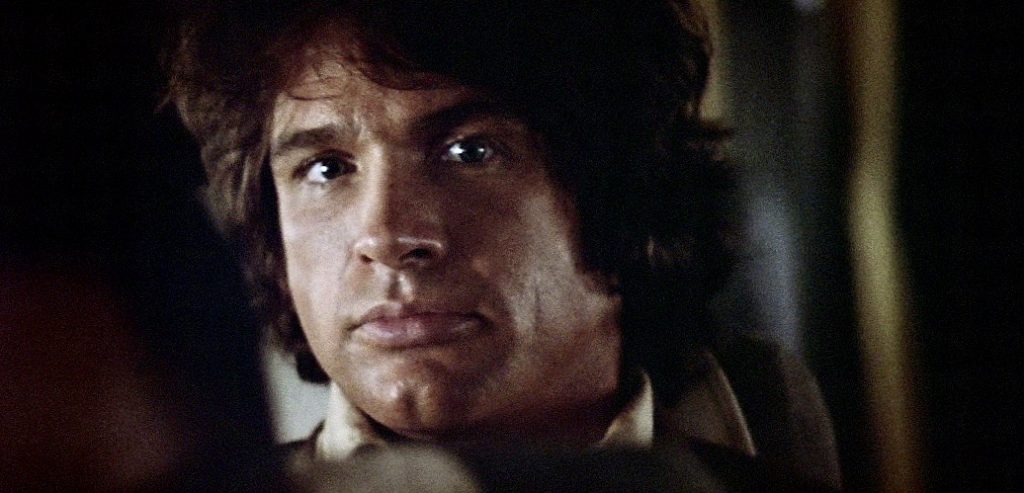
The Parallax View. Warren Beatty plays a loose-cannon of a reporter investigating the “accidental” deaths of people who were witness to a politician’s assassination years earlier at a 4th of July rally in Seattle’s Space Needle. He comes across a secret organization (“Parallax”) recruiting potential killers. Director Alan J. Pakula’s chilly, political thriller is aided by the moody cinematography by Gordon Willis and a whip-smart screenplay by David Giler and Lorenzo Semple Jr. Pakula was a master of paranoia on screen with films like Klute and All The President’s Men, but this one plays out darker and bleaker, which probably didn’t help the film’s box office at the time. Critics misread the pessimistic mood of the film, complaining that it needed a Hitchcock to liven it up. But this was a film nurtured by more conspiracy-driven, cynical times.
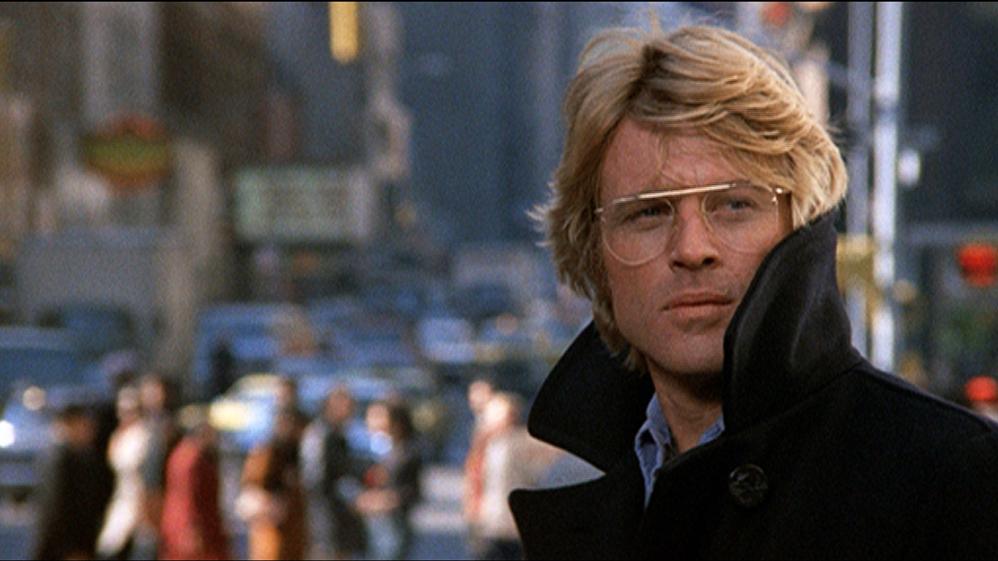
Three Days of the Condor. Robert Redford plays a CIA book researcher for a secret government agency housed in the “American Literary Historical Society” in a Manhattan brownstone. When he comes back from lunch everyone in the building has been killed and he goes on the run, unable to trust his own organization. Director Sydney Pollack keeps the movie hurtling at breakneck pace as the noose tightens and Redford begins to realize there is no one he can trust. Faye Dunaway plays a stranger he meets (and abducts) along the way as he tries to figure out why people are gunning for him. Max von Sydow plays a shadowy assassin in this first-rate post-Watergate thriller.
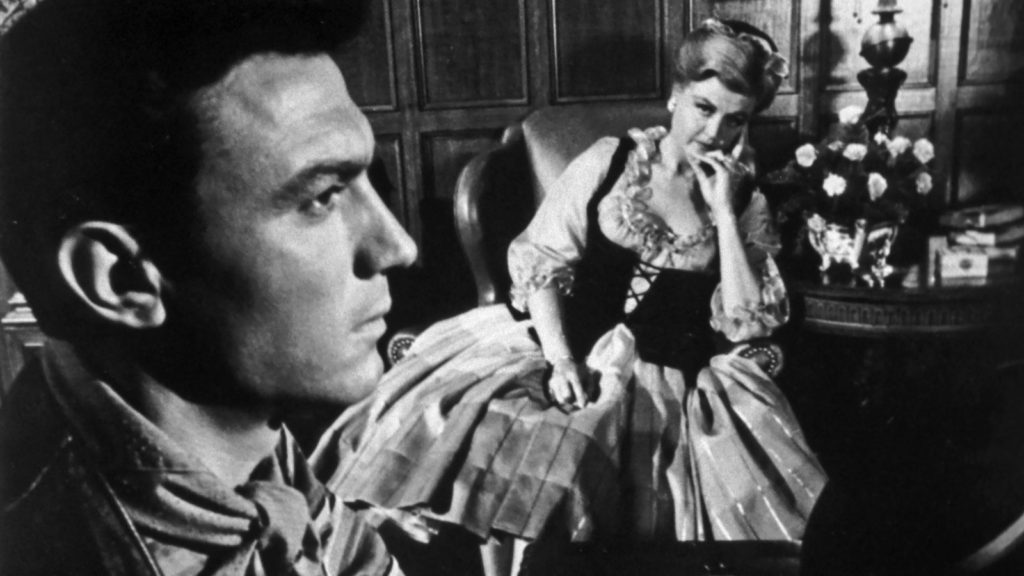
The Manchurian Candidate. A platoon of army soldiers get captured during the Korean War. When they return to the States their commanding officer Raymond Shaw (Laurence Harvey) is awarded the Congressional Medal Of Honor for freeing his men from behind enemy lines. But other members of the troop (including Frank Sinatra) are suffering horrifying nightmares. What they don’t realize is that they were captured by the Communist Chinese and all brainwashed. Shaw’s mother (Angela Lansbury) is married to a rising Senator (espousing McCarthy-like Communist paranoia), and they plan to use Raymond to commit an assassination to help them win an election. Angela Lansbury was only three years older than Laurence Harvey when she played his mother, and she’s absolutely terrifying, in this darkly sardonic political thriller superbly directed by John Frankenheimer. The movie came out before John F. Kennedy’s assassination and afterwards disappeared from view for 26 years.
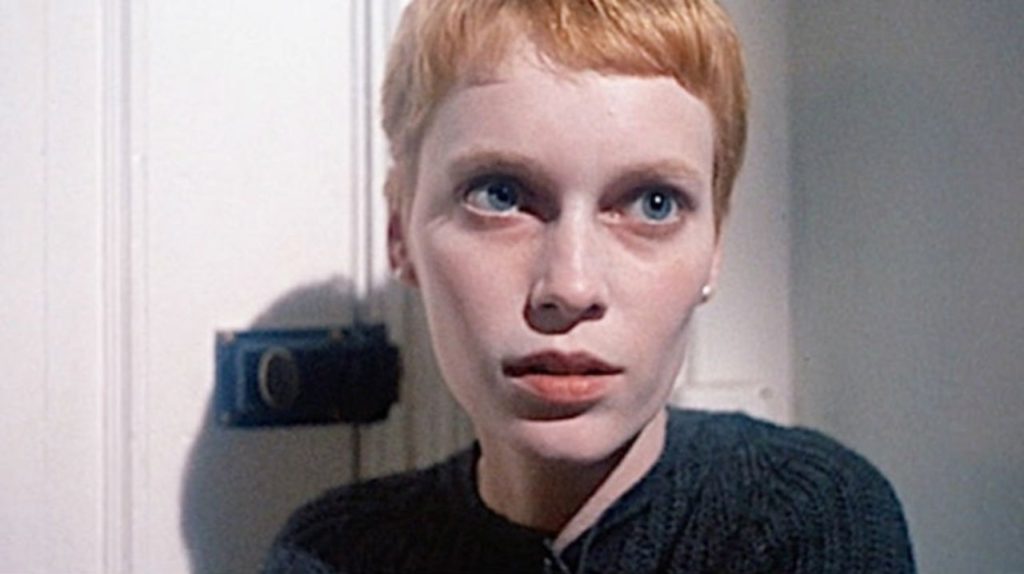
Rosemary’s Baby. Roman Polanski transformed Ira Levin’s best-selling book into a cinematic horror classic. Mia Farrow (in a remarkable, aching sympathetic performance) plays Rosemary, moving into a classic gothic New York building with her actor-hopeful husband (John Cassavetes). She meets an eccentric older couple upstairs (Ruth Gordon and Sidney Blackmer) and her husband gravitates to them. When Rosemary finds out she is pregnant she soon becomes fearful that there is a coven of witches targeting her baby. What Polanski does so well is to make you feel Rosemary’s mounting fear, and turn all Manhattan into a paranoid, untrustworthy landscape. Check out Repulsion and The Tenant to experience Polanski’s sardonic mastery of paranoia cinema.
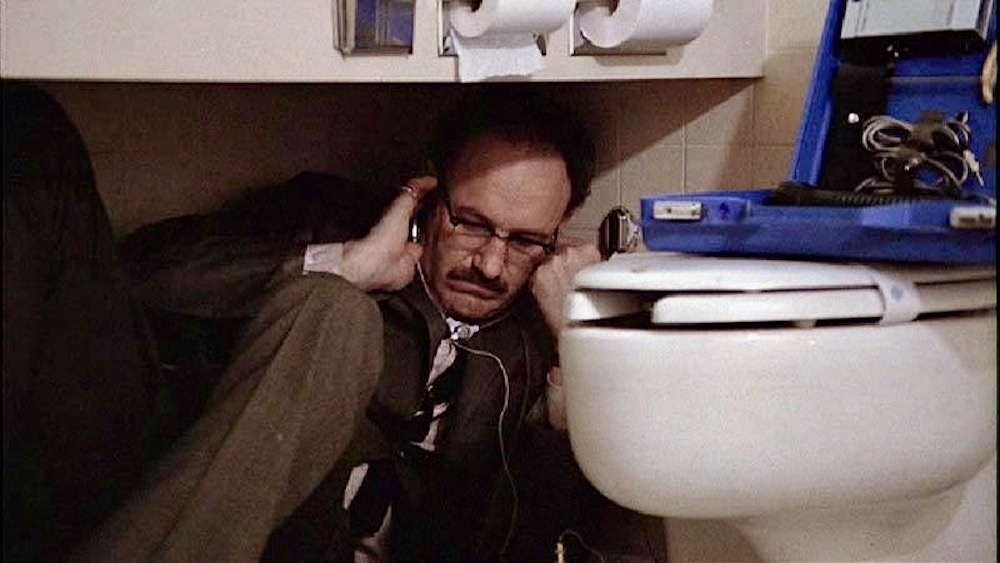
The Conversation. “I don’t care what they’re talking about. All I want is a nice fat recording,” says surveillance man Harry Caul (Gene Hackman) in Francis Ford Coppola’s brilliant thriller. A simple recording of a couple (Frederic Forrest & Cindy Williams) talking in San Francisco’s Union Square Park soon becomes a twisty rabbit hole of conspiracies and murder. An incident in Caul’s past where people ended up dead because of a recording he made has Harry fearful that history is about to repeat itself. But what the film does so deviously is to make you question what it is you are really listening to. A jazzy score, incredible sound design and a staggering performance by Gene Hackman make you really feel Harry’s increasing paranoia and panic.
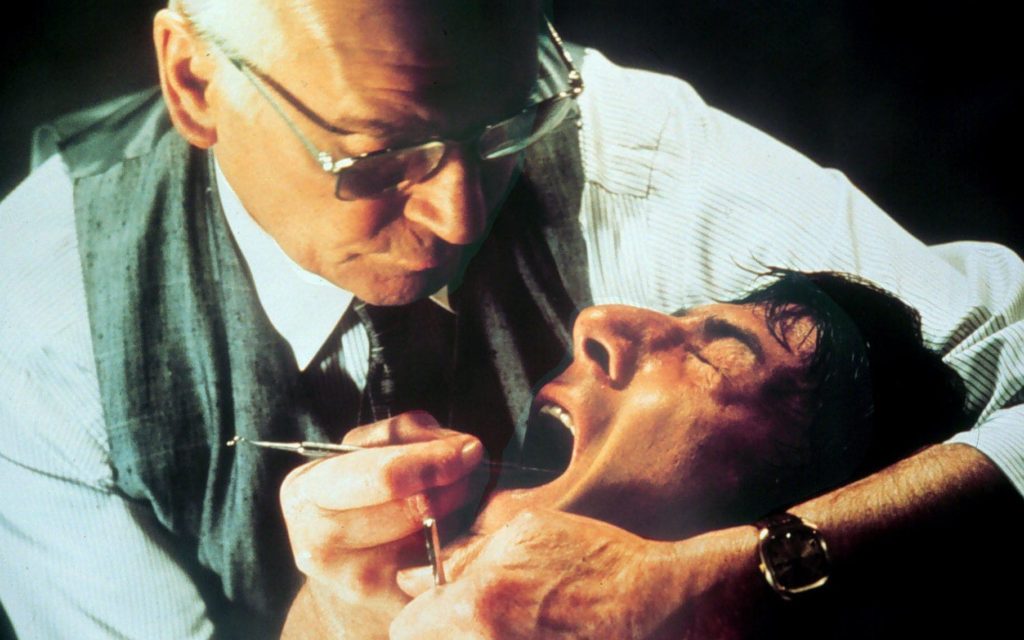
Marathon Man. “Is it safe?” Those three words now immediately conjure one of the most nightmarish “dentistry” sequences in movie history in director John Schlesinger’s incredibly suspenseful adaption of William Goldman’s novel/screenplay. Dustin Hoffman brings a sweaty intensity in the role of Thomas, a Columbia University student and runner, whose life takes a terrifying turn when his mysterious businessman brother (Roy Scheider) shows up mortally wounded at his NYC apartment. Afterwards Thomas is kidnapped by strangers and tortured by a notorious Nazi war criminal (Laurence Olivier) who thinks Thomas knows more than he does. Every street, building, hotel room and park in the film exudes a sense of ominous danger. The scene where Thomas is taking a bath and suddenly realizes someone has broken into his apartment still freezes the blood.
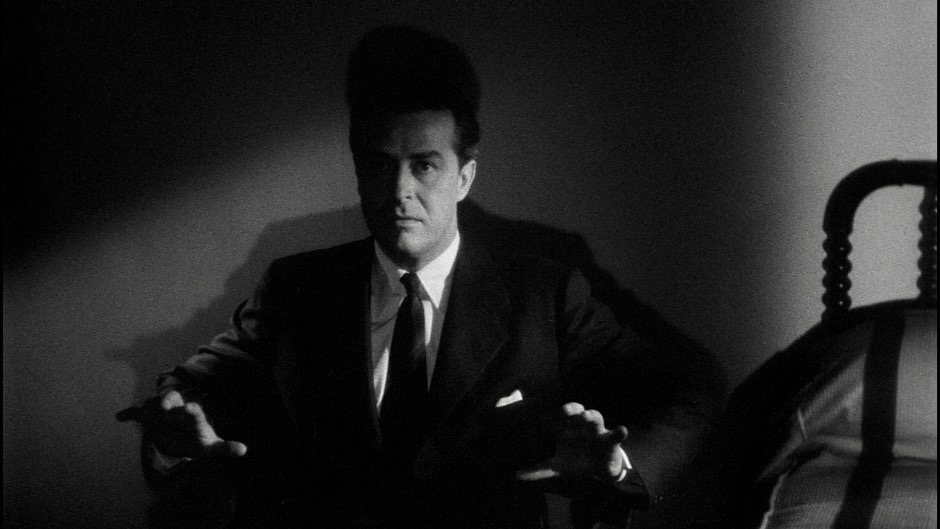
Ministry of Fear. In a Fritz Lang film, as opposed to an Alfred Hitchcock film, the heroes are more damaged, complex and less heroic. Here, based on a Graham Greene novel, his protagonist is Stephen Neale (Ray Milland), just released from an asylum for killing his wife. On his way to London he stumbles onto a village fete and accidentally wins a cake meant for another. From then on plummets into a shadowy network of Nazi spies. As he tries to unravel the mystery in blitz-bombed London, he gets even more embroiled in danger and is eventually unable to even trust the woman (Marjorie Reynolds) who tries to assist him in exposing the ring of spies. Lang’s genius for destabilizing the audience and plunging them in a nighttime nightmare of shadows was a characterization of much of his great later work like Scarlet Street, The Woman in the Window and The Big Heat.
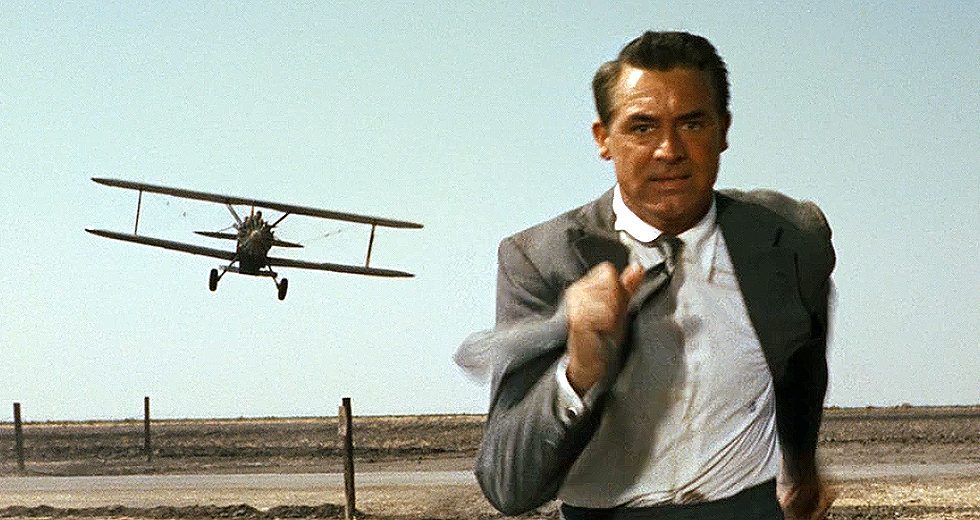
North by Northwest. A perfect example of director Alfred Hitchcock’s film mastery. You begin with an innocent man (Cary Grant), mistaken by bad guys for a government agent, who is nearly killed. You watch him dig into the mystery of a secret criminal organization that will introduce him to an enigmatic woman (Eva Marie Saint). Have him murderously pursued by a crop duster plane. And, eventually, chased across the presidential faces of Mount Rushmore. With Bernard Herrmann’s pulse-pounding score and a taut screenplay by Ernest Lehman, you end up with a film that is sexy, suspenseful and a joy to experience again and again thanks to Cary Grant’s charm and Hitchcock’s cinematic sleight-of-hand.
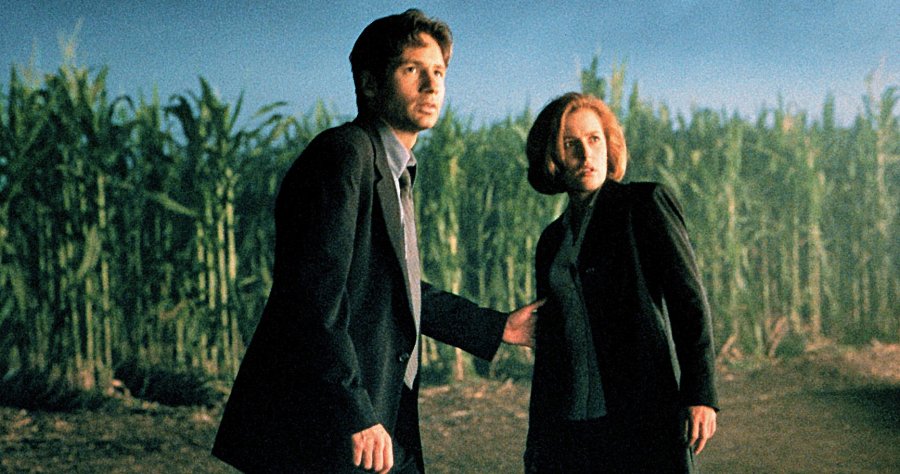
The X-Files: Fight the Future. Why this movie was successful was because it just felt like a continuation of Chris Carter’s popular TV series starring David Duchovny as Special Agent Fox Mulder and Gillian Anderson as Agent Dana Scully (whose department explore unexplained phenomenon). While Investigating a bomb threat in Dallas they meet a paranoid doctor- Alvin Kurtzwell (Martin Landau), who warns them that the bomb was a cover-up to hide the containment of an alien virus. Frankly all the government conspiracy stuff and the “cigarette-smoking man” (William B. Davis) used to annoy me on the series. I wanted them to just get to the monsters. But the movie is very enjoyable, and the chemistry between Duchovny and Anderson translate well to the big screen. The whole end with Mulder racing to a hidden facility in Antarctica to rescue an infected Scully is pretty impressive.
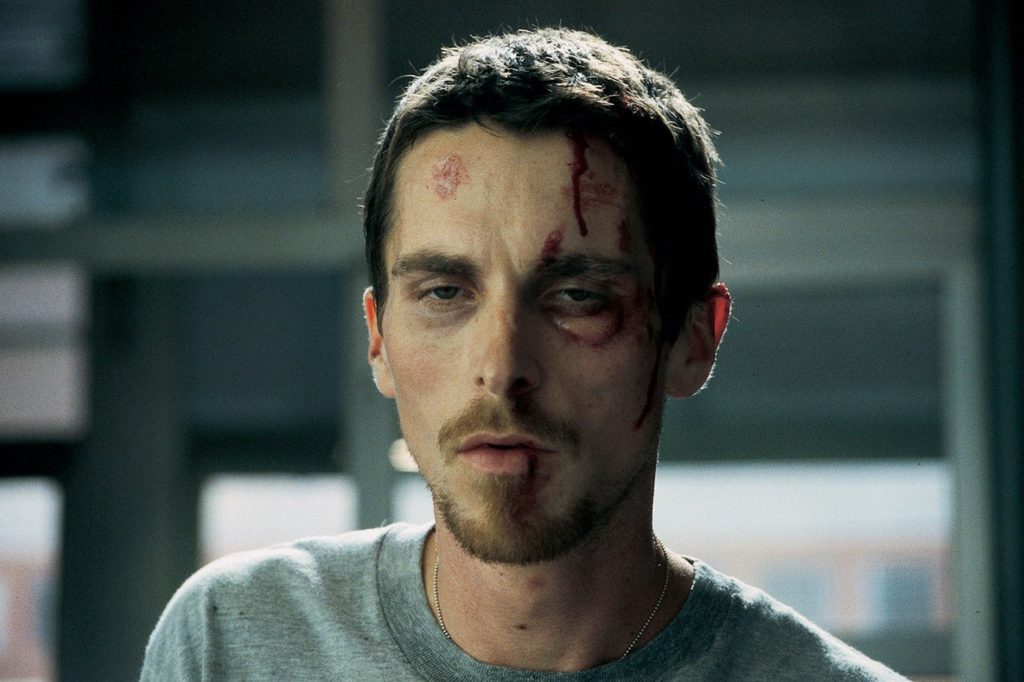
The Machinist. Eerily ingenious, Kafkaesque nightmare starring a skeletal-thin Christian Bale as a lonely factory machine operator who hasn’t slept in a year and writes post-ups in his apartment charting his daily weight loss. Even the prostitute he regularly visits (Jennifer Jason Leigh), or the waitress at the airport diner he nightly comes to for coffee and pie both say to him: “If you were any thinner you wouldn’t exist.” After a horrible mangling accident at work involving a co-worker he repeatedly starts seeing a sinister bald man in a red car and his paranoid fantasies rapidly escalate. Brad Anderson really knows how to create a creepy atmosphere of dread. First you convince yourself you’re looking through the eyes of insanity, but the ending is very surprising and satisfying.
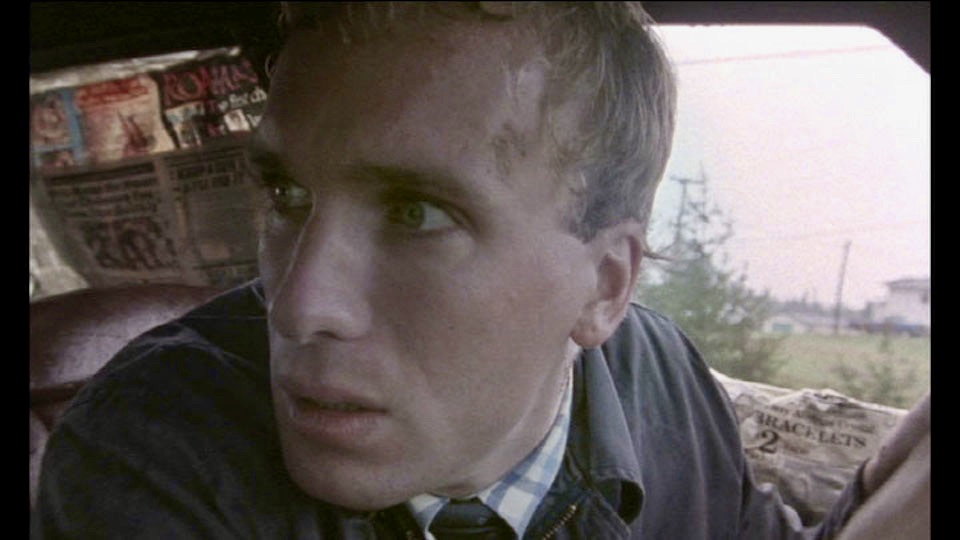
Clean, Shaven. Writer/director Lodge Kerrigan handcrafted a brilliant and harrowing portrait of a schizophrenic man. Peter Winter (Peter Greene), is on a quest for his daughter given up for adoption years ago, The movie tracks his spiraling descent into madness as, beset by hallucinations, he drives a car with the mirrors taped over and the windows sealed up with newspapers. It’s pretty nightmarish stuff- with disturbing scenes of self-mutilation, layered with a chilling soundtrack composed of snatches of radio broadcasts and static, and a beautiful performance by Greene that doesn’t have a false note in it. Like Polanski’s Repulsion, there’s so much more than meets the paranoid eye. Beware the “fingernail” scene!
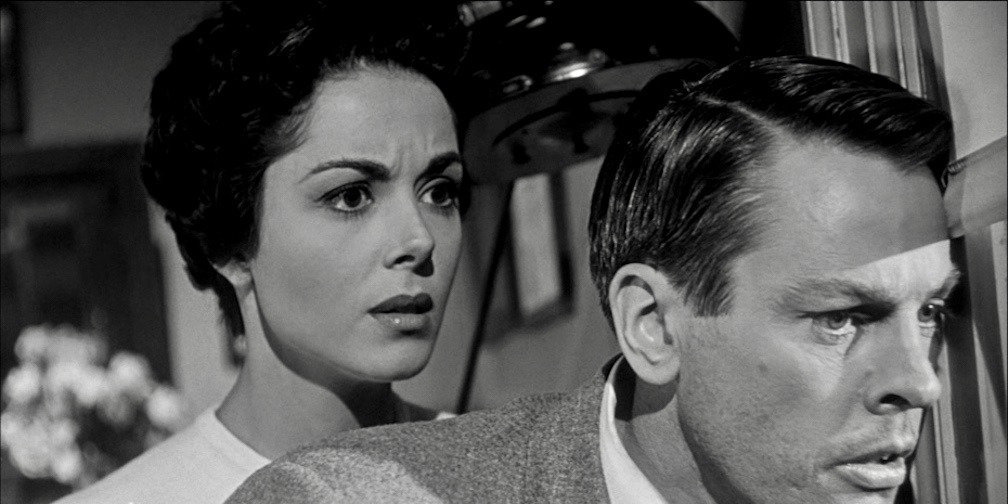
Invasion of the Body Snatchers. A true paranoid sci-fi classic about spores from space that take root in Santa Mira, California growing pod-like vegetation that takes over the body of its host. It gets you when you’re asleep. Soon the town is teaming with secretive, emotionless aliens, all acting under one control. Director Don Siegel’s great 1956 film heavily reflects the insidious McCarthy-era time in which the film was made. Kevin McCarthy is terrific as the caffeinated doctor trying to flee town with his girlfriend (Dana Wynter) and warn the world of the imminent invasion. Philip Kaufman’s excellent 1978 remake of Siegel’s original film about spores from space that drift down, inhabit people’s bodies and cause the newly infected to conspire to overtake the world. Set in a hipster San Francisco, Donald Sutherland and the wonderful Brooke Adams are on the run from these unemotional aliens. While the original film reflected the McCarthy Era, this is dotted with all sorts of 70s tropes, like New Age gurus etc. But it still makes for one hell of a thriller. Invaders From Mars; The Puppet Masters; the TV series The Invaders and many others mined this “they are among us” paranoid vision.
Maybe they are! Time to get out the tinfoil hat.

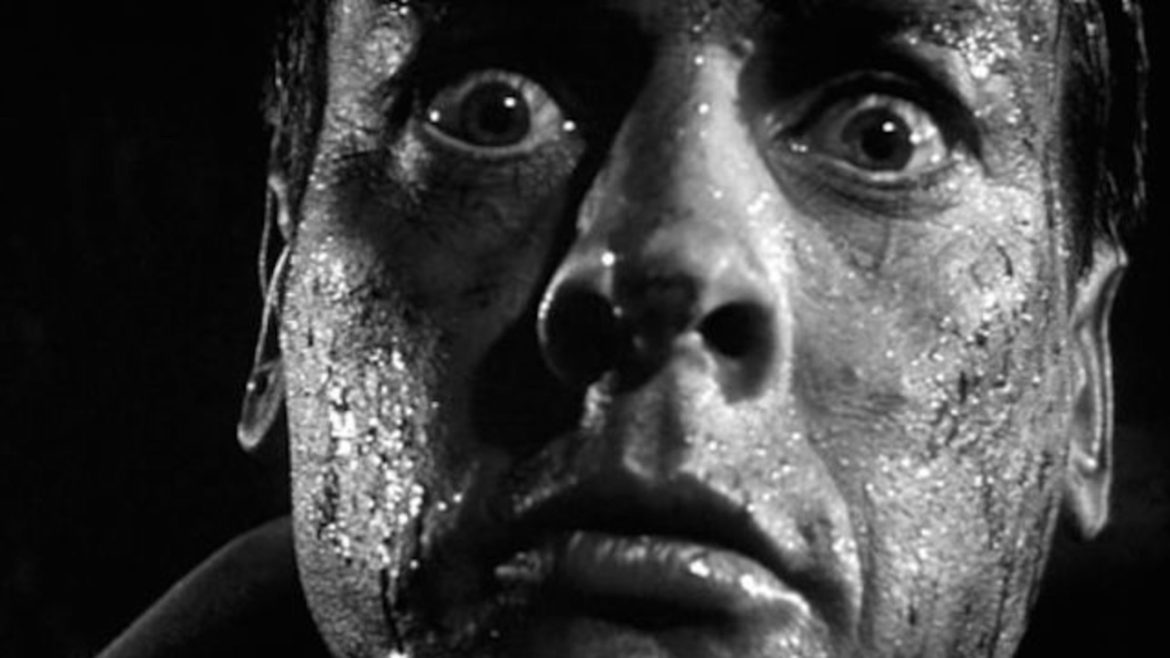
All these films corroborate what I feel after reading the newspaper!